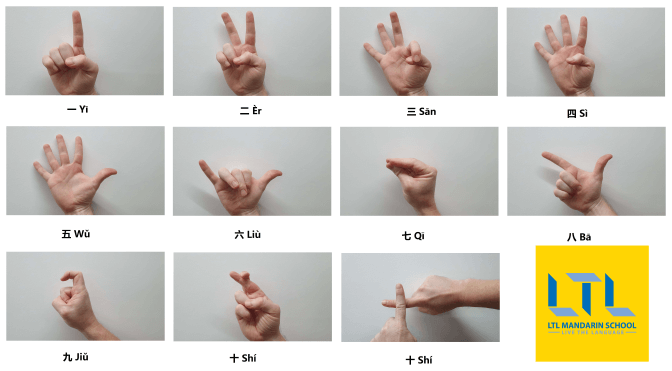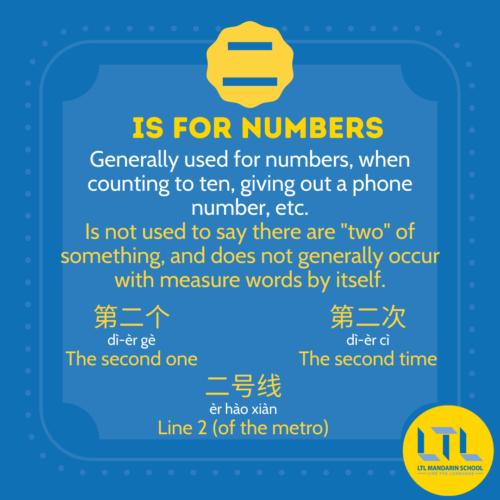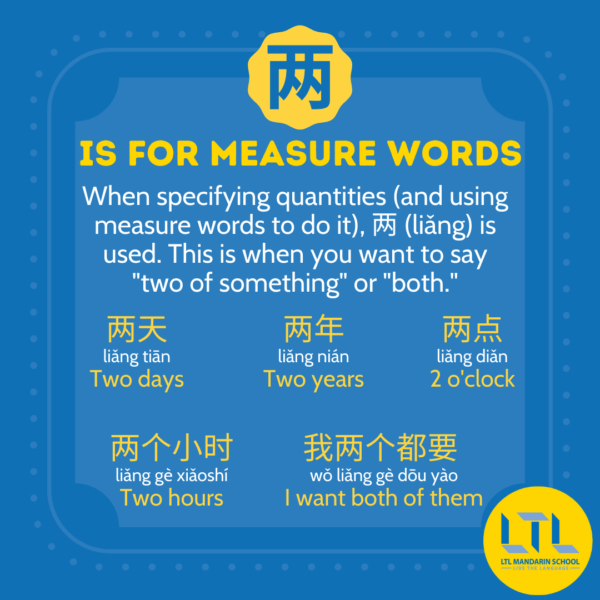
Chinese Grammar Bank
GUIDE TO CHINESE NUMBERS
Numbers are an excellent starting point for any beginner of Mandarin. Learning numbers opens up basic conversations about shopping, birthdays, making plans, and more you might not expect (months and days of the week for example)!
This is not intended for learning in one day. If you are just beginning, focus on learning the numbers 0-10 and then counting up to 100.

CHINESE NUMBERS 1 – 10
Let’s start with the basics! Knowing how to say and write these ten numbers alone will already help you lot in your Chinese learning journey, such as telling someone the date!
| 0 | 1 | 2 | 3 | 4 | 5 | 6 | 7 | 8 | 9 | 10 |
|---|---|---|---|---|---|---|---|---|---|---|
| 零 | 一 | 二 | 三 | 四 | 五 | 六 | 七 | 八 | 九 | 十 |
| líng | yī | èr | sān | sì | wǔ | liù | qī | bā | jiǔ | shí |
Make sure to learn them, because you’ll see them a lot on the rest of this page!
To go a little further with these 10 Chinese Numbers, did you know Chinese people count with only one hand? Here’s how to do it:

CHINESE NUMBERS BELOW 100,000
Chinese numbers reflect different place values in a number. Here are all the characters you need to know to count up to 99,999! Don’t worry it all makes sense but there is one key thing to note here.
In English, numbers are separated with a comma after every 3 numbers, for example, 102,549. In Chinese, they are separated every four numbers when spoken.
| Characters | 万 | 千 | 白 | 十 |
| Meaning | wàn (10,000) | qiān (1,000) | bái (100) | shí (10) |
Now, consider the number 63,758. To know how to read a number in Chinese, you have to think of the place value of each number.
THE NUMBER 63,758 IS READ AS:
六万 三千 七百 五十 八
Before you get overwhelmed, let’s break this down by showing how this number is built, starting from the ones value (the number eight) and building up to the whole number.
| 8 | 八 |
| 58 | 五十 八 |
| 758 | 七百 五十 八 |
| 3758 | 三千 七百 五十 八 |
| 63758 | 六万 三千 七百 五十 八 |
See the pattern of the Chinese numbers here? It’s not too bad. Just remember a number wouldn’t be read as 63 thousand, but because of the IMPORTANT NOTE we mentioned above it reads as essentially 6 ten thousands, 3 thousands, 7 hundreds, 5 tens, 8.
If this sounds complex, just think of each part as a measure word like we’ve talked about before:
- 3 BOXES of…
- A FLOCK of…
- 6 THOUSANDS…
- 4 TEN THOUSANDS…
READING NUMBERS WITH 0 IN THEM
Things can however get a little tricky when the number zero in included.
In the following list of numbers that have the number zero, note that the character for zero (零) is not used if the number ends in zero.
It is only used if the number zero is between two other non-zero numbers
Even if there are multiple zeros, like in the number 40070, only one 零 is used. Let’s have a look at some variations:
| 40 | 四十 |
| 407 | 四百零七 |
| 4007 | 四千零七 |
| 4070 | 四千零七十 |
| 4700 | 四千七百 |
| 40007 | 四万零七 |
| 40070 | 四万零七十 |
| 40700 | 四万零七百 |
| 47000 | 四万七千 |
TOP TIP || If you stumble upon a number and are not sure how to read it, paste it into Google Translate, set the translation to Chinese, and press the pronunciation button to hear how it’s said!
NUMBERS 100,000 AND ABOVE
Again, remember our IMPORTANT NOTE on English vs Chinese numbers.
Even when writing numbers in numeric rather than character form (think “1” instead of 一), in Chinese the comma is always put every four digits, instead of every three digits like in English. It’s important we re-emphasise this!
For example, this means that 32,000 in English is written 3,2000 in Chinese.
“in Chinese the comma is always put every four digits”
| ENGLISH | CHINESE |
|---|---|
| 32,000 | 3,2000 |
| 5,489,201 | 548,9201 |
| 123,243,534,632,452,345 | 12,3243,5346,3245,2345 |
Here are the characters for how to pronounce bigger numbers or write them in character form.
Let’s consider the number 31,986,375. The number is written as 三千一百九十八万六千三百七十五.
| 3 | 1 | 9 | 8 | 6 | 3 | 7 | 5 | |
|---|---|---|---|---|---|---|---|---|
| Character meaning | 千 | 百 | 十 | 万 | 千 | 百 | 十 | |
| Place value | 10,000,000 | 1,000,000 | 100,000 | 10,000 | 1,000 | 100 | 10 | 1 |
Here’s how to write or say 31,986,375:
| 5 | 五 | wǔ |
| 75 | 七十五 | qīshíwǔ |
| 375 | 三百七十五 | sānbǎi qīshíwǔ |
| 6375 | 六千三百七十五 | liùqiān sānbǎi qīshíwǔ |
| 86375 | 八万六千三百七十五 | bāwàn liùqiān sānbǎi qīshíwǔ |
| 986375 | 九十八万六千 | jiǔshí bāwàn liùqiān sānbǎi qīshíwǔ |
| 1986375 | 一百九十八万六千三百七十五 | yībǎi jiǔshíbā wàn liùqiān sānbǎi qīshíwǔ |
| 31986375 | 三千一百九十八万六千三百七十五 | sānqiān yībǎi jiǔshíbā wàn liùqiān sānbǎi qīshíwǔ |
👉 Note, this is not correct:三千万一百万九十八万六千三百七十五
DIFFERENCE BETWEEN 二 AND 两
When do you use 二?
- #1 – To express a number (二十,二百), a series of numbers (first, second, third…), or a phone number or other serial number.
- #2 – Before certain nouns, to express an implied “second。” For example 二月, which means February, is the second month. Similarly, 二楼 is short for “the second floor” of a building.
When do you use 两?
- #1 – 两 is used before a measure word (两个,两斤,两辆).
- #2 – It is also used before a noun that functions as a measure word. For example: 两年(two years), 两岁 (two years old).
So far, so good?
Exceptions to 二 or 两
Sometimes you can use 二 or 两 when expressing weight, length, or width, either word is acceptable:
- 二斤 (2 jin),两斤 (2 jin) *a jin is a commonly used measurement in China that is equivalent to half a kilogram (500 grams)
- 二厘米 (2 centimeters),两厘米 (2 centimeters)


If you’d like to keep learning about numbers in Chinese, we’ve got a full guide that’ll teach you how to dial phone numbers in Chinese, tell your date of birth and a lot more 👉 FULL Guide to Chinese Numbers.
Don’t forget to check all of the Lucky Numbers to bring some Chinese culture to your learning!

Learn Mandarin with Flexi Classes
Book online classes with the best teachers in the industry.
FAQs
How do you count to 10 in Chinese?
Counting to 10 in Chinese is super easy :
1, 一 yī
2, 二 èr
3, 三 sān
4, 四 sì
5, 五 wǔ
6, 六 liù
7, 七 qī
8, 八 bā
9, 九 jiǔ
10, 十 shí
How do you say 10, 100, 1000 and 10,000 in Chinese?
10 – 十 shí
100 – 白 bái
1000 – 千 qiān
10,000 – 万 wàn
What numbers do they use in China?
China uses the Arabic numerals as any other country in the world, as well as another numeral system based on Chinese characters.
Why is 8 a lucky number in Chinese culture?
8 is a lucky number in the Chinese culture because the number’s pronunciation is the same as for the word “to prosper” 發 fā.
How to write numbers from 1 to 10 in traditional Chinese?
Numbers from 1 to 10 are the same in simplified and traditional forms, easy!
How do you say ‘number’ in Chinese?
Number in Chinese is 数字 shùzì.









